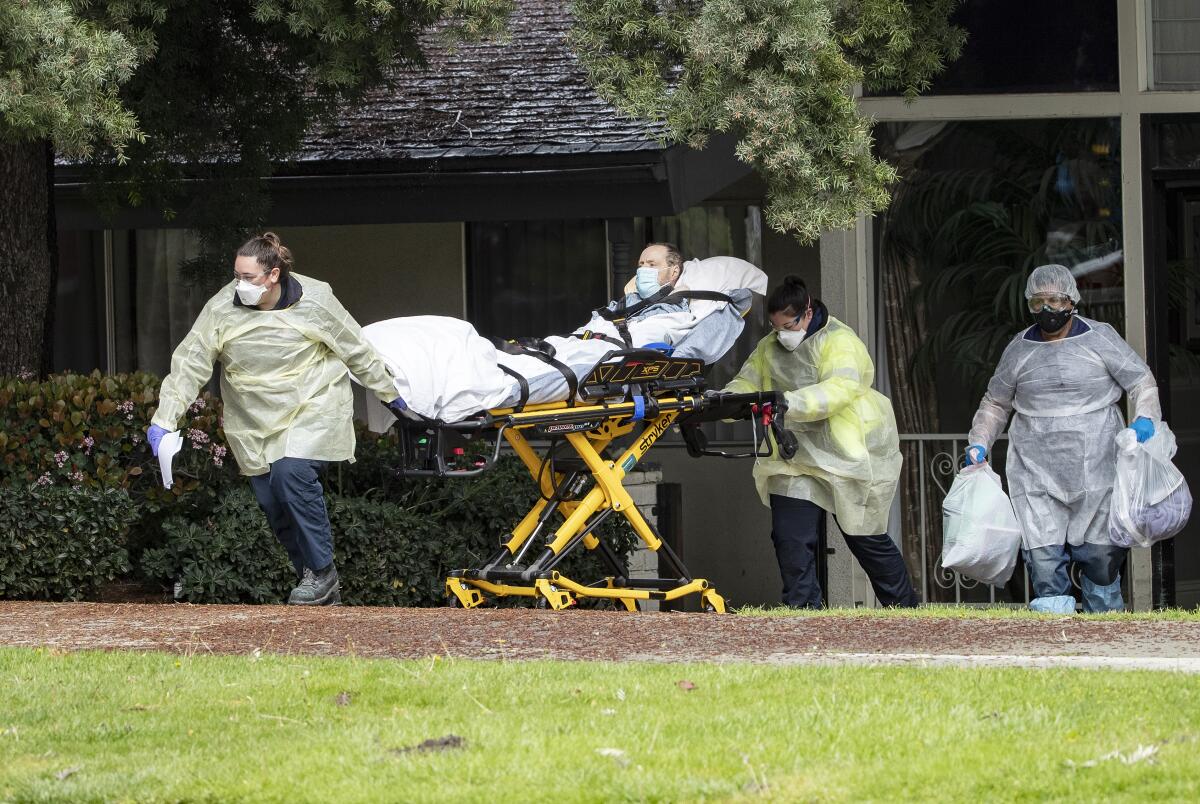Fatal cases of COVID-19 at nursing facilities prompt new California law

- Share via
SACRAMENTO — With skilled nursing homes hit particularly hard by the COVID-19 pandemic, Gov. Gavin Newsom on Tuesday signed a law requiring those facilities in California to report disease-related deaths to health authorities within 24 hours during declared emergencies.
The law was written in response to concerns that health agencies were slow to respond to outbreaks in skilled nursing facilities because they did not receive timely information about them.
So far, more than 5,630 residents and staff at skilled nursing facilities in the state have died from COVID-19 — 36% of California’s fatalities from the coronavirus. The percentage “reveals the significant weaknesses in the reporting system currently required by these facilities,” said Assemblyman Jim Wood (D-Healdsburg), who introduced the legislation.
COVID-19 outbreaks have occurred at some 1,164 skilled nursing homes and 379 assisted-living facilities in California, according to the state Department of Public Health. The spread at such facilities is alarming to health officials, who note that the virus is especially deadly for the elderly and for those with underlying medical problems.
Wood’s bill requires that records of deaths be compiled into a weekly report on the department’s website, and that residents of the facilities and their families be notified of COVID-19 cases.
“This data, which will be reported in a manner that protects an individual’s privacy, will help the state receive more timely data, helping us respond much more quickly to the spread of communicable diseases, such as COVID-19, and save lives,” said Wood, who is a dentist.
The measure, AB 2644, also puts into law current Department of Public Health guidance that facilities have a full-time staff member who is trained in infection prevention and control.
In the early weeks after the pandemic was declared in March, much of what the public knew about COVID-19 in nursing homes did not come from public health agencies but from relatives, staff members and facility administrators.
The state was slow to report to the public which skilled nursing facilities were dealing with outbreaks.
The reporting requirements in the new law will also help the state meet its mandate to send data on virus infections to the federal Centers for Disease Control and Prevention.
The measure was supported by groups advocating for the elderly, including the California Commission on Aging.
“This pandemic has highlighted the ongoing problems of poor infection control, understaffing and poor regulation of nursing homes here and across the nation,” Betsy Butler, the commission’s chairwoman, said in a letter to lawmakers, adding that the bill “takes meaningful steps to address these issues.”
More to Read
Sign up for Essential California
The most important California stories and recommendations in your inbox every morning.
You may occasionally receive promotional content from the Los Angeles Times.














